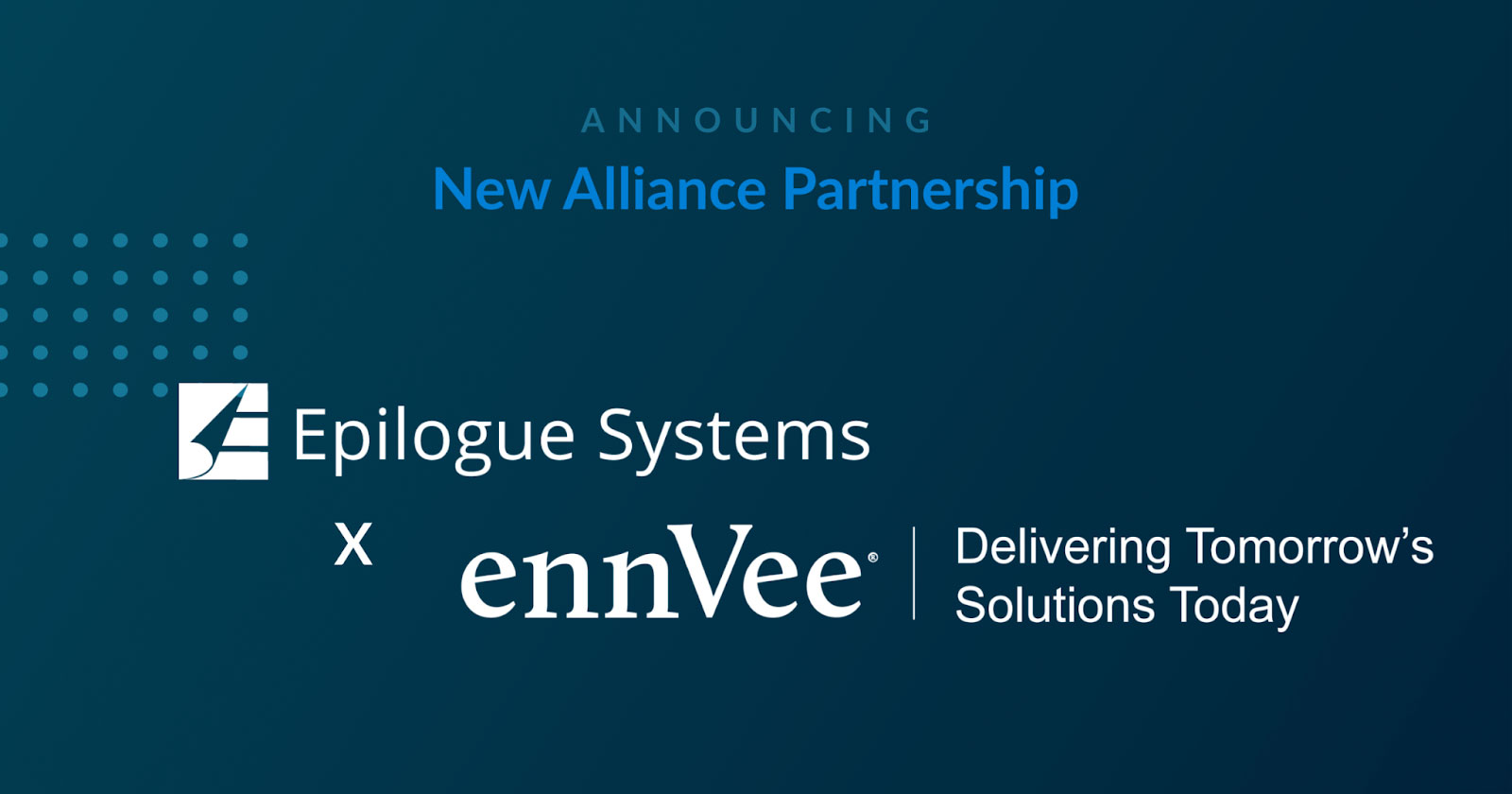Digital transformation redefines how companies in the insurance industry operate, engage with customers, and innovate their products and services.
According to a report by McKinsey, insurance companies that have embraced digital transformation witnessed a profit margin increase of more than 40% compared to those that did not.
This transformation involves integrating digital technology into all areas of business, leading to fundamental changes in how businesses operate and deliver value to customers. It encompasses automation, data analytics, and customer-centric platforms to streamline operations, enhance customer experience, and introduce new business models. This section explores the application of digital transformation in the insurance sector, its benefits and challenges, and anticipates future trends.
Preface: This article diverges from our usual focus on
Epilogue Opus, our digital adoption platform. We occasionally like to explore diverse subjects to provide interesting insights and perspectives. We appreciate your readership.
What Is Digital Transformation?
Digital transformation entails the integration of digital technology into all aspects of a business, fundamentally changing how it operates and delivers value to customers. It’s more than just digitizing existing processes; it’s about creating new, innovative ways to conduct business, interact with customers, and compete in the digital age. In the insurance industry, this means leveraging technologies such as artificial intelligence (AI), blockchain, and the Internet of Things (IoT) to innovate and improve efficiency.
The Evolution of Digital Transformation in the Insurance Industry: A Brief Overview
The digital transformation journey in the insurance industry has progressed from basic digitization to the integration of advanced technologies. Initially, insurers digitized paper-based processes and established online presences via websites in the late 1990s and early 2000s, aiming for operational efficiency. The rise of the internet then propelled the adoption of online platforms for quoting and policy issuance, enhancing direct customer interaction.
With the advent of smartphones and social media, insurers embraced mobile apps and digital channels in the 2010s for personalized engagement and service delivery. The mid-2010s onwards saw a significant shift towards leveraging big data and analytics for deeper customer insights, risk assessment, and personalized products. Artificial intelligence (AI) and machine learning (ML) have further automated and refined processes, from claims handling to customer service, offering speed and accuracy.
Today, emerging technologies like blockchain promise to revolutionize data security and efficiency. This ongoing evolution underscores a shift from efficiency-focused to customer-centric digital innovations, setting the stage for future advancements that will continue to reshape the insurance landscape.
Benefit of Digital Transformation in Insurance
The advantages of digital transformation in insurance are undeniable, creating a win-win situation for both insurers and customers. Here’s a deeper dive into some key benefits:
1. Enhanced Customer Experience:
Convenience at Your Fingertips: Mobile apps allow customers to manage policies, file claims, and access important documents 24/7, eliminating the need for traditional phone calls or in-person visits.
Personalized Service: Leveraging customer data, insurers can tailor recommendations for additional coverage, offer discounts based on risk profiles, and provide targeted communication for a more relevant experience.
Faster Claims Processing: AI-powered automation can streamline claim processing, significantly reducing turnaround times and minimizing customer frustration. Imagine filing a claim with just a few clicks or snaps on your phone, and receiving a quick resolution.
2. Improved Efficiency:
Streamlined Operations: Repetitive tasks like policy issuance, renewal processing, and claims adjudication can be automated, freeing up valuable employee time to focus on complex cases and customer service.
Reduced Costs: Automation and streamlined operations lead to cost savings that can be passed on to customers in the form of lower premiums or invested in further innovation.
3. Data-Driven Decisions:
Deeper Customer Insights: By analyzing vast amounts of data collected through various digital touchpoints, insurers can gain a 360-degree view of their customer base. This allows them to understand customer needs and behaviors better, leading to the development of more relevant and competitive products.
Risk Management and Pricing Accuracy: Telematics data from connected cars and wearables can provide valuable insights into driving habits and health conditions. This data can be used to create fairer pricing models based on individual risk profiles, ensuring customers pay premiums that accurately reflect their risk level.
4. Risk Mitigation:
Proactive Risk Prevention: Leveraging wearables and connected devices, insurers can incentivize healthy behaviors and early detection of potential health issues. This can lead to a reduction in claims and overall healthcare costs.
Fraud Detection: AI-powered fraud detection systems can analyze vast amounts of data to identify suspicious claims patterns in real-time, reducing fraud losses and protecting honest customers.
The benefits of digital transformation extend beyond these points. InsurTech is fostering a more transparent and customer-centric insurance landscape, where both insurers and customers can reap the rewards of a more efficient, data-driven, and innovative industry.
Challenges on the Road to Digital Nirvana
While the benefits of digital transformation in insurance are undeniable, the road to achieving a fully digitalized future is paved with hurdles. Here’s a closer look at some of the key challenges insurers face:
Legacy Infrastructure:
Many insurance companies rely on outdated core systems that are not designed to handle the demands of modern digital tools and data analytics. Upgrading these legacy systems can be a complex and expensive undertaking, requiring significant investments in time, resources, and expertise.
Data Security Concerns:
The insurance industry thrives on trust, and customer data security is paramount. As digital transformation opens the door to wider data collection and analysis, robust cybersecurity measures are crucial. Insurers need to invest in cutting-edge security solutions and implement comprehensive data privacy policies to safeguard customer information and comply with evolving regulations.
Regulatory Compliance:
The regulatory landscape surrounding data privacy and artificial intelligence (AI) usage is constantly evolving. Keeping up with these changes and ensuring compliance can be challenging for insurers. Navigating complex regulations while adopting new technologies requires ongoing monitoring and adaptation of internal processes.
Change Management:
Shifting from a traditional, paper-based work culture to a digital-first environment requires a significant change in mindset and skillsets for employees. Implementing effective communication and training programs is crucial to ensure employee buy-in and successful adoption of new technologies. Resistance to change can hinder progress, so fostering a culture of innovation and continuous learning is essential.
Integration Challenges:
Successfully integrating new digital tools and platforms with existing legacy systems can be a complex task. Data silos and incompatible formats can create roadblocks to seamless data flow and hinder the effectiveness of digital solutions. Developing a well-defined integration strategy and investing in tools that facilitate smooth data exchange are critical for overcoming these challenges.
Talent Acquisition and Upskilling:
The digital transformation journey requires a workforce with the skills to leverage new technologies and navigate the changing insurance landscape. Finding and retaining talent with expertise in data analytics, AI, and cybersecurity can be challenging in a competitive job market. Investing in upskilling existing employees through training programs is essential to bridge the skill gap and ensure a future-proof workforce.
Charting the Future of Digital Transformation in Insurance
The future of digital transformation in the insurance industry is poised to be transformative, driven by ongoing technological advancements and evolving consumer expectations. Several key trends are shaping this future landscape, paving the way for innovative solutions and new opportunities.
1. Enhanced Customer Engagement
In the coming years, customer engagement will be at the forefront of digital transformation efforts. Insurers will leverage advanced analytics and AI-driven insights to deliver hyper-personalized experiences tailored to individual preferences and behaviors. Interactive virtual assistants and chatbots will become more sophisticated, providing proactive support and guidance throughout the customer journey. Additionally, seamless omnichannel experiences will enable customers to interact with insurers across multiple touchpoints, from mobile apps to social media platforms, enhancing convenience and accessibility.
2. Integration of Emerging Technologies
Emerging technologies such as blockchain, IoT, and augmented reality (AR) will play a significant role in reshaping insurance processes and products. Blockchain, with its immutable ledger and smart contract capabilities, will streamline claims processing, reduce fraud, and enhance data security. IoT devices, including wearable sensors and connected vehicles, will enable insurers to gather real-time data for more accurate risk assessment and personalized pricing. AR applications will revolutionize the underwriting process by providing insurers with enhanced insights into property conditions and assessing risks remotely.
3. Expansion of Digital Ecosystems
Digital ecosystems will continue to expand, fostering collaboration between insurers, InsurTech startups, and other ecosystem partners. These partnerships will enable insurers to tap into a broader range of expertise and capabilities, accelerating innovation and driving new business models. Platform-based approaches will facilitate the integration of third-party services and data sources, enabling insurers to offer more holistic solutions that address evolving customer needs. Furthermore, open APIs and interoperable systems will promote seamless data exchange and collaboration across the insurance value chain.
4. Focus on Sustainability and Resilience
As the insurance industry grapples with the increasing frequency and severity of natural disasters and climate-related risks, digital transformation will play a critical role in building resilience and promoting sustainability. Insurers will leverage geospatial analytics, satellite imagery, and climate modeling to assess and mitigate risks associated with extreme weather events. Parametric insurance solutions, based on predefined triggers and real-time data, will provide faster payouts to policyholders affected by natural disasters, enhancing financial resilience and recovery efforts.
5. Ethical and Responsible AI Adoption
With the growing adoption of AI and machine learning algorithms in insurance decision-making processes, there will be a heightened focus on ethical and responsible AI practices. Insurers will prioritize transparency, fairness, and accountability in AI-driven models to mitigate biases and ensure equitable outcomes. Explainable AI techniques will enable insurers to interpret and justify algorithmic decisions, fostering trust and regulatory compliance. Additionally, ongoing investments in AI ethics frameworks and governance structures will promote responsible AI adoption across the industry.
In Conclusion:
Digital transformation presents both significant opportunities and challenges for the insurance industry. Insurers that successfully navigate this transformation will likely achieve greater efficiency, develop innovative products, and offer superior customer experiences. As the industry continues to evolve, staying at the forefront of technological advancements will be crucial for success in the digital age.









